A lot of RVers are curious about the best generator for their needs. What size generator do you need for a 30 amp RV? There are a lot of things to consider when it comes to generators. In this article, we will discuss the different types of generators available, as well as what size generator you need for your RV. We’ll also provide some tips on how to choose the right generator for your needs!
Table of Contents
What to Look For In a 30 Amp Generator
There are a few things you’ll want to keep in mind when shopping for a 30 amp generator. Here are a few key features to look for:
- Power Output: Ensure the generator can output enough power to meet your needs. The last thing you want is to be left in the dark!
- Fuel Efficiency: A generator is only as good as its fuel efficiency. Make sure you choose a model that won’t break the bank when it comes time to fill up.
- Noise Level: Nobody wants a noisy generator keeping them up at night. Choose a model that runs quietly so you can get a good night’s sleep. [1]
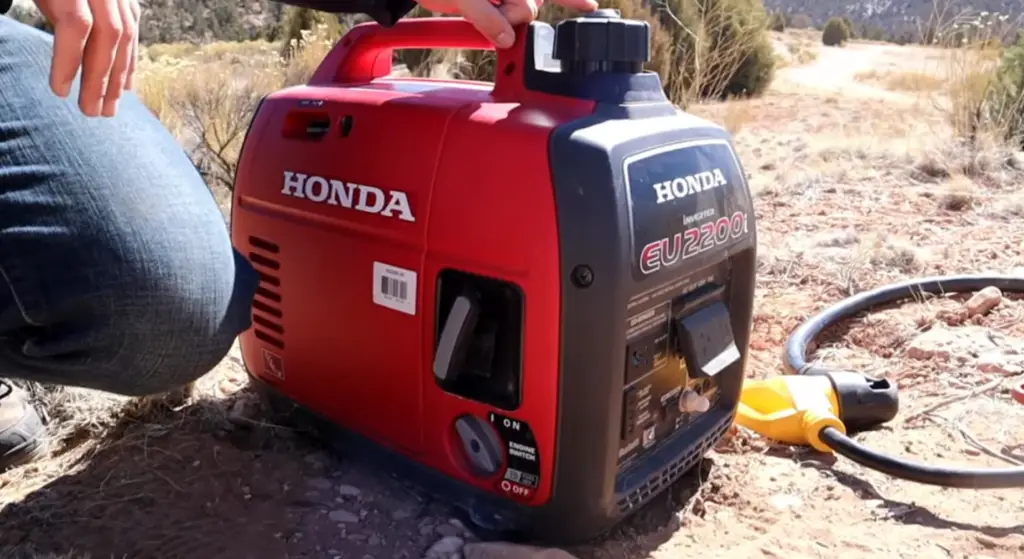
Why You Should Always Opt for an Inverter Generator
An inverter generator is a great investment for any RV owner. Here are some of the main reasons why:
- They’re quieter than traditional generators, so you won’t disturb your neighbors while camping.
- They’re more fuel-efficient.
- They produce cleaner power, so your electronics will thank you.
Now that we’ve established why an inverter generator is a good idea, let’s move on to finding the perfect size for your RV.
How to Determine What Size Inverter Generator You Need
The first step is to figure out what your power needs are. To do this, add up the wattage of all the appliances you want to run at the same time. Here’s a quick guide to approximate wattage needs:
- Small RV air conditioner: 1000-2000 watts
- Television: 400 watts
- Laptop: 50 watts
- Coffee maker: 600 watts
Once you have a total wattage, add an additional 1000 watts for any starting surges (this is especially important for air conditioners). So, if you wanted to run an RV air conditioner and television simultaneously, you would need at least 3000 watts.
Now that you know your power needs, it’s time to choose a generator.
They’re relatively inexpensive and easy to store. The downside is that they’re not as fuel-efficient as larger generators, so if you’re planning on using your RV for extended periods of time, it’s worth investing in a bigger generator. [2]
If you have the budget for it, a propane generator is a great option. They’re more expensive than portable generators, but they’re also much quieter and more fuel-efficient. Propane generators are a good choice for full-time RVers or anyone who wants to be as eco-friendly as possible.
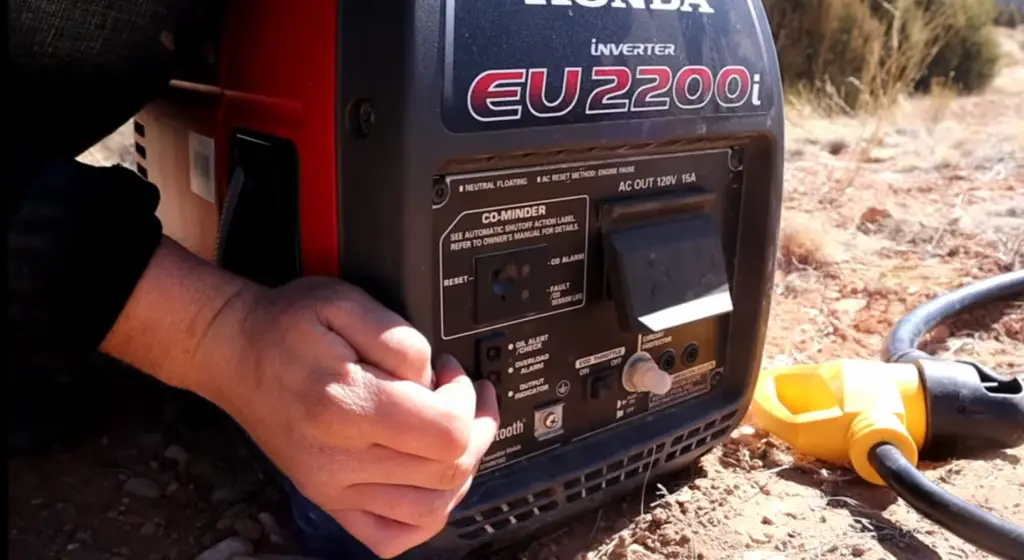
The size of the generator you need will depend on how many appliances you want to run concurrently. If you only need to power a few small appliances, then a portable generator should be enough. But if you want to run multiple large appliances simultaneously, then you’ll need a larger generator.
Ensure it has an automatic shut-off feature. This will prevent the engine from overloading and burning out.
Bigger Is Not Always Better When It Comes to RV Generators
While it may be tempting to buy the biggest RV generator on the market, that doesn’t always mean it’s the best option. In fact, many times a smaller generator is more than enough to power your RV.
So, how do you know what size generator for a 30 amp RV is right for you? Here are a few things to consider:
- The size of your RV
- The number of electronics you’ll be powering
- How often you’ll be using your RV
- Your budget
Keep these factors in mind and you’ll be well on your way to finding the perfect generator for your needs.
Choosing The Right Size Generator For 30 Amp RV
If you have a small RV, then you won’t need a very large generator. However, if you have a larger RV, then you’ll need a bigger generator.
You also need to consider how much power you’ll need to run all of your appliances and electronics. If you only plan on running a few things, then you won’t need as much power as someone who wants to run their entire RV on the generator.
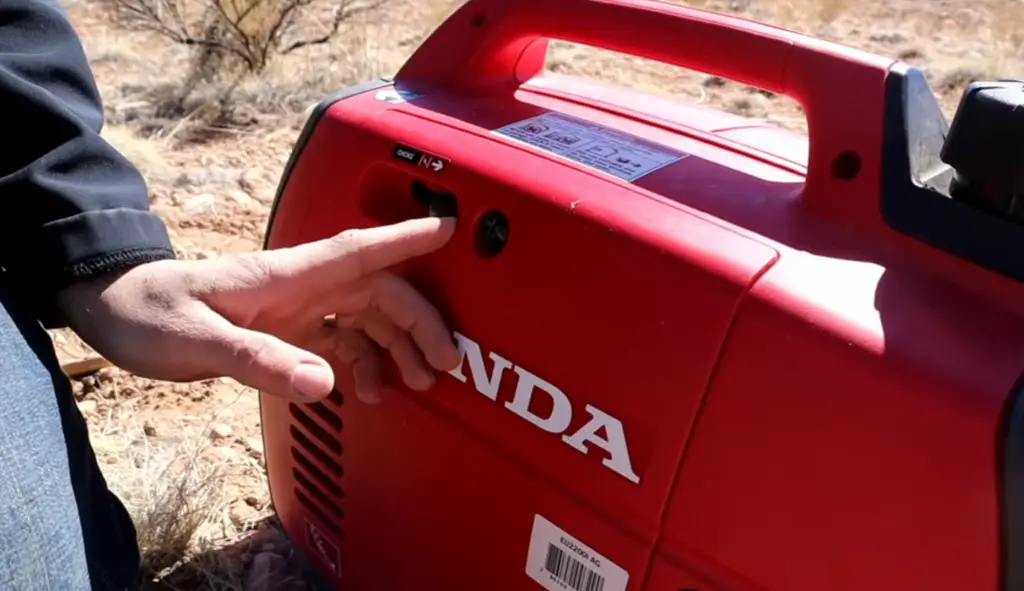
Once you’ve considered the size of your RV and the amount of power you’ll need, then you can start looking at different generators. There are many different sizes and types of generators available on the market, so you should be able to find one that will work for your needs.
If you’re not sure which generator to choose, then you can always ask for help from a salesperson at your local RV dealership. They should be able to help you select the right generator for your RV. [3]
Remember, when choosing a generator for your 30 amp RV, size and power are the two most important factors. If you take your time and do your research, then you should be able to find the perfect generator for your needs.
Generator Wattage
The next thing you’ll need to consider is the wattage of the generator. This is important because it will determine how much power your RV can actually use. For example, a typical 30 amp RV requires around 3600 watts to run everything simultaneously. So, if you want to be able to fully utilize all of the features and appliances in your RV, you’ll need a generator that can provide at least that much power.
There are two main types of generators – portable and standby. Portable generators are great for RVs because they’re relatively small and lightweight, making them easy to transport and store. Standby generators are larger and more expensive, but they offer the benefit of being permanently installed on your RV.
When choosing a generator, it’s important to select one that’s powerful enough to meet your needs, but not so powerful that it’s overkill. Otherwise, you’ll be wasting money on a generator that you don’t need.
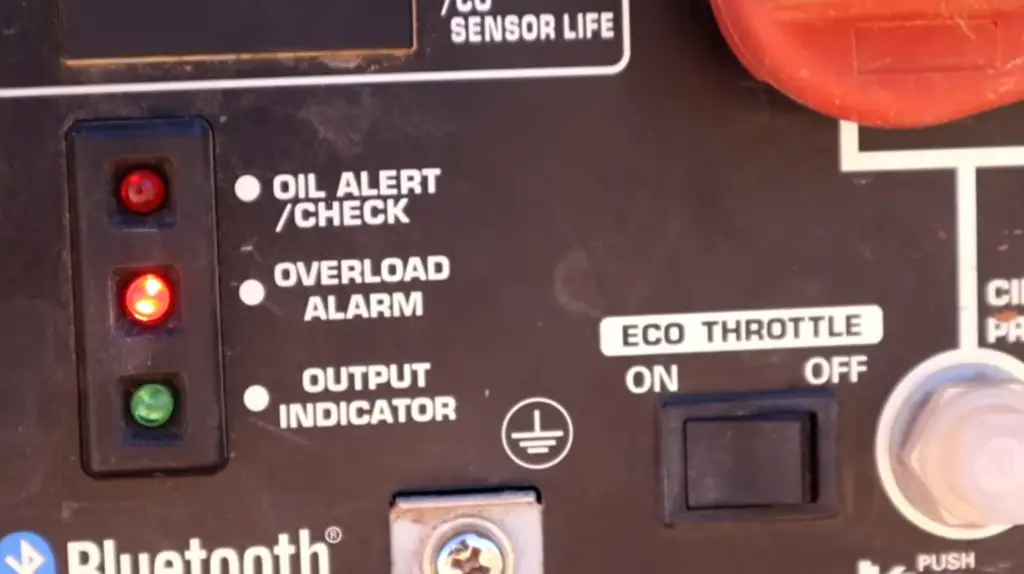
Parallel Operation Of Generators
If you have a large RV or one that requires a lot of power, you may need to use two generators in order to get the job done. This is called parallel operation and it’s not as complicated as it sounds. You’ll just need to purchase a parallel kit, which will connect the two generators together. Then, you can run them at the same time and double your power output. Just be sure that both generators are the same model and size so that they’ll work together seamlessly.
Noise Level
Size also plays a role in how much noise your generator will make. If you plan on using your RV generator while camping, you’ll want to make sure it’s not too loud. Some generators can be quite loud, so it’s important to pay attention to the noise level before making a purchase.
You can find the decibel rating of a generator by looking at the specs. The higher the number, the louder the generator will be. For reference, most generators range from 50-60 decibels. To put that into perspective, 50 decibels is about as loud as a dishwasher. So if you’re looking for a quiet generator, you’ll want one that’s around 50 decibels or less.
Fuel Type
There are two types of generators when it comes to fuel: gasoline and diesel. Gasoline is the most common type of fuel for generators, and it’s also the least expensive. Diesel generators are more expensive to purchase, but they’re much more efficient than gasoline generators and they’ll last longer too. If you’re looking for a generator that will be used frequently, a diesel generator is a good investment.
Portability
The first thing you need to consider is how portable do you need the generator to be? If you plan on taking it camping or tailgating, then you’ll want something lightweight that can easily be transported. However, if you’re looking for a generator to keep at your home in case of an emergency, then portability might not be as big of a concern.
Weight is an important factor when it comes to portability. A heavier generator will obviously be more difficult to move around, but it will also usually have a longer run time. So, if weight is a major concern for you, then you might have to sacrifice some run time in order to get a lighter model.
Will The Generator Run The Same at High Altitudes
If you’re planning to use your RV generator at high altitudes, you’ll need to take a few extra precautions. First, make sure the generator is designed for use at high altitudes. Second, consult your owner’s manual for specific altitude recommendations.
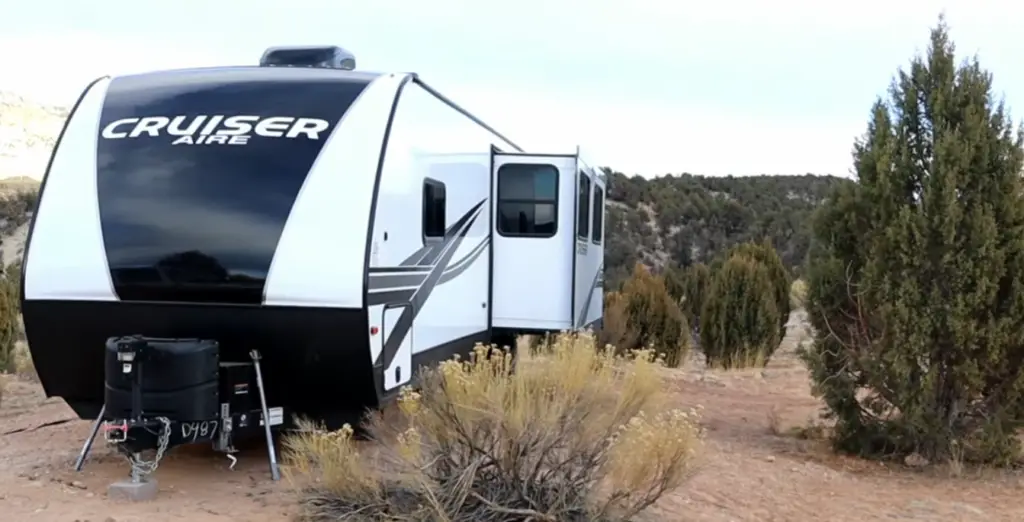
Third, be aware that the engine will run hotter at high altitudes, so it’s important to keep an eye on the temperature gauge and not overwork the engine. Finally, always make sure there is plenty of ventilation when using the generator at high altitudes.
Other Features That You Should Consider or Buy Separate
There are a few other features that you might want to consider when purchasing your generator. One is a remote start. If you don’t feel like getting out in the cold or heat to start your generator, then a remote start can be a lifesaver. You can also buy a cover for your generator. This will help protect it from the elements and extend its life. Another feature that some people like is an automatic shut-off. This feature kicks in when the generator gets too hot and shuts it down before any damage can be done.
Most generators come with at least a one-year warranty, but some companies offer longer warranties. If you can get a longer warranty, it’s worth it. That way, if something does happen to your generator, you’ll be covered.
Boost Power
If you want to be able to use your RV’s 30 amp hookup, then you’re going to need a transfer switch.
Without a transfer switch, you run the risk of damaging your RV or harming yourself.
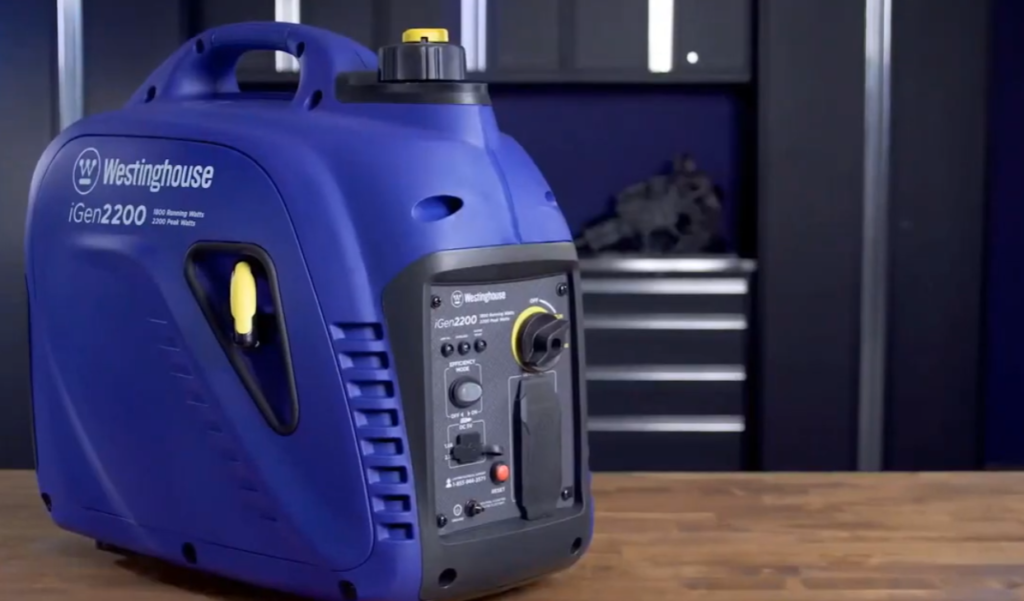
A transfer switch will allow you to use your generator’s power without having to worry about any of that. You can simply plug the generator into the transfer switch and then plug the RV into the other side of the transfer switch. Then, when you need power, you can flip a switch and have it all at your fingertips. It’s really that easy.
There are two types of transfer switches: manual and automatic. A manual transfer switch requires you to physically flip a switch when you want to use the generator power. An automatic transfer switch will do it all for you. It will sense when there’s a power outage and automatically switch to the generator power. Then, when the power comes back on, it will automatically switch back to shore power.
Automatic transfer switches are more expensive than manual ones, but they’re worth the money if you can swing them. They make using your generator much easier and take a lot of the stress out of powering your RV.
In short, you’ll need at least a 3000-watt generator to run your RV’s 30-amp hookup. If you want any other features or conveniences, then you’ll need to factor that into your decision as well. However, as long as you get a generator that can output at least 3000 watts, you’ll be in good shape.
Economy Mode
One more thing to consider is the economy mode. Many generators have an economy mode that you can use to save fuel. Essentially, what this does is lower the power output of the generator when you don’t need as much power.
For example, let’s say that you’re just running a few lights and your RV’s fridge. In this case, you wouldn’t need 3000 watts of power. You could probably get away with using less than half of that and still have everything run perfectly fine. That’s where economy mode comes in.
In economy mode, your generator will only output the amount of power that you actually need. This saves fuel and helps to extend the life of your generator. It’s a great feature to have, especially if you plan on using your generator a lot.
As you can see, there’s a lot to consider when choosing a generator for your RV. However, as long as you keep these things in mind, you should be able to find the perfect generator for your needs. Just make sure that you do your research and don’t rush into anything. Otherwise, you might end up with a generator that doesn’t work well for your RV or that doesn’t have all the features that you need. Take your time and choose wisely and you’ll be able to enjoy many years of worry-free RVing.
Fuel Economy
Fuel economy is an important consideration when choosing a generator. After all, you don’t want to spend a fortune on fuel every time you use your RV. Fortunately, there are a few things that you can do to improve the fuel economy of your generator.
First, make sure that you buy the right size generator for your RV. If you get a generator that’s too big, then it will use more fuel than necessary. On the other hand, if you get a generator that’s too small, it won’t be able to power everything in your RV and you’ll end up using more fuel than necessary anyway.
Second, run your generator regularly. If you only use it once in a while, it won’t run as efficiently as it could. However, if you use it regularly, it will stay in good shape and run more efficiently.
Finally, consider investing in a fuel-efficient generator. These generators are designed to run more efficiently and use less fuel. They’re a bit more expensive than traditional generators, but they’ll save you money in the long run by using less fuel.
Buy a Cover
One more tip is to buy a cover for your generator. This will protect it from the elements and help to keep it in good shape. A cover will also help to keep your generator clean, which is important for maintaining its efficiency.
RV Outlet Plug
You need to think about the type of outlet plug you have. The three most common types are 20-amp, 30-amp, and 50-amp plugs. Each one of these has different power requirements, so it’s important to choose the right one for your needs.
If you’re not sure which outlet plug you have, the best way to find out is by looking at your RV’s electrical panel. This should be located near the main breaker box. Once you’ve found it, take a look at the labels on each circuit breaker. One of them should say “Main” or “Service.” This is likely your 20-amp circuit breaker.
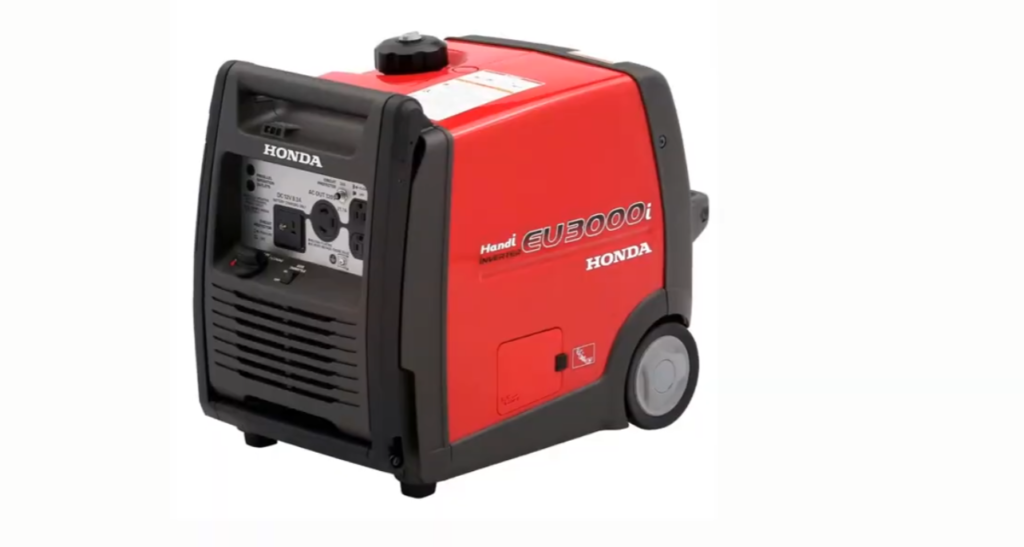
Your RV’s electrical panel will also have a label that says “30-amp.” This is your 30-amp circuit breaker. And finally, there should be a label that says “50-amp.” This is your 50-amp circuit breaker.
Magnetic Dipstick
If you have a 30-amp RV, you’ll need a generator that can provide at least 30 amps of power. However, it’s always a good idea to choose a generator that can provide more power than you need. This will give you some wiggle room in case you ever need to use appliances that require more power than your RV is equipped to handle.
Take a look at the magnetic dipstick that’s located inside your electrical panel. This dipstick will have two numbers on it: the “maximum” and the “minimum.” The maximum is the amount of power your RV can safely handle. The minimum is the amount of power your RV needs to function properly.
Parallel Capable
For the ability to run more than one appliance concurrently, you’ll need a parallel capable generator. This means that the generator has two or more outlets so that you can plug in multiple devices at once.
Not all generators are parallel capable, so it’s important to check before you buy. If you’re not sure, the best way to find out is by reading the product description on the manufacturer’s website.
Be sure to check out our selection of generators today. We have a wide variety of options available, so you’re sure to find one that meets your needs.
Dual Fuel
If you want the flexibility to run your generator on either gasoline or propane, you’ll need a dual fuel model. These generators can switch between fuels without any problem, so you’re never left without power. [4]
If you want the confidence that comes with having a fallback option in case one of your fuels runs out, twin fuel stoves are an excellent choice. However, they can be more expensive than single-fuel models, so it’s important to weigh your options.
FAQ
What size generator do I need for a 30 amp camper?
Depending on the RV type and size, the number of appliances you plan to use simultaneously, and the power each appliance requires, you’ll need a device of specific size for 30A hookups.
As a general rule of thumb, you’ll need a generator that can produce at least 2000 watts (or 20 amps) to power a 30A RV. [5]
It’s best to consult with an expert or use a sizing calculator. However, here are some additional tips to keep in mind:
- If you only plan to use your RV occasionally or for short trips, a smaller generator may be sufficient.
- If you have a larger RV or plan to use it frequently, a larger generator will be necessary.
- If you’ll be using power-hungry appliances like air conditioners, you’ll need a more powerful generator.
Will a 3500-watt generator run a 30-amp RV?
The short answer is no. A 3500W generator cannot run a 30A RV. The reason is that a 3500W generator only produces enough power to run a few appliances at once. You will quickly overload the system and cause the generator to shut down.
In order to safely and effectively run a 30A RV, you’ll need at least a 5000W generator. If you are planning on running multiple air conditioners or other high-powered appliances, you may need an even larger one. [6]
Will a 2500-watt generator run an RV air conditioner?
The simple answer is no, a 2500W generator won’t run an RV air conditioner. You’ll need at least a 3000-4000 W generator.
How many watts does a 30 amp RV use?
A 30A RV uses around 3600 W. [7]
What size generator do I need for my 30A RV?
To find it out, look at the nameplate on each appliance and add up the total watts required. This will give you the minimum wattage you’ll need from a generator.
It’s always best to choose a generator that has more power than you think you’ll need. That way, you’ll have room to run more than one appliance at a time without overloading the device.
What’s The Difference Between 30A And 50A Service?
The main difference is that 50A service uses two hot wires instead of one. This means that 50A service can provide more power than 30A service. Additionally, 50A service is typically found at RV parks, while 30-ampere circuits are found in most homes.
While a generator with 50 amps can theoretically supply twice as much power as a device with 30 amps, this doesn’t mean that you need to buy a bigger generator. In fact, most RVs only use about half of the power they could get from a 50-amp connection. This is because most RVs have appliances that use less than 20 amps each. So even if you had a fridge and a TV running on a 30-amp circuit, you’d still have plenty of power left over.
Useful Video: Best 30 Amp Generators for RV – Reviews & Buying Guide
Conclusion
To sum it up, most RVs only need a 30A generator. However, if you have an RV with electric heat or air conditioning, you may need a 50A generator. Additionally, if you plan on running several appliances at the same time, you may also need a 50A generator.
Happy camping!
References
- https://outdoorish.com/gear-guides/30-amp-rv-generators/
- https://www.homedepot.com/c/ab/choosing-the-right-size-generator/9ba683603be9fa5395fab901458f23e5
- https://www.cummins.com/news/2021/04/12/what-size-generator-do-i-need-power-rv
- https://decideoutside.com/best-size-portable-generator-30-amp-rv/
- https://crowsurvival.com/what-size-generator-for-30-amp-rv/
- https://www.boondockersbible.com/knowledgebase/will-a-3500-watt-generator-run-my-rv/
- https://mobilerving.com/blog/30-amp-rv-how-many-devices-can-you-run

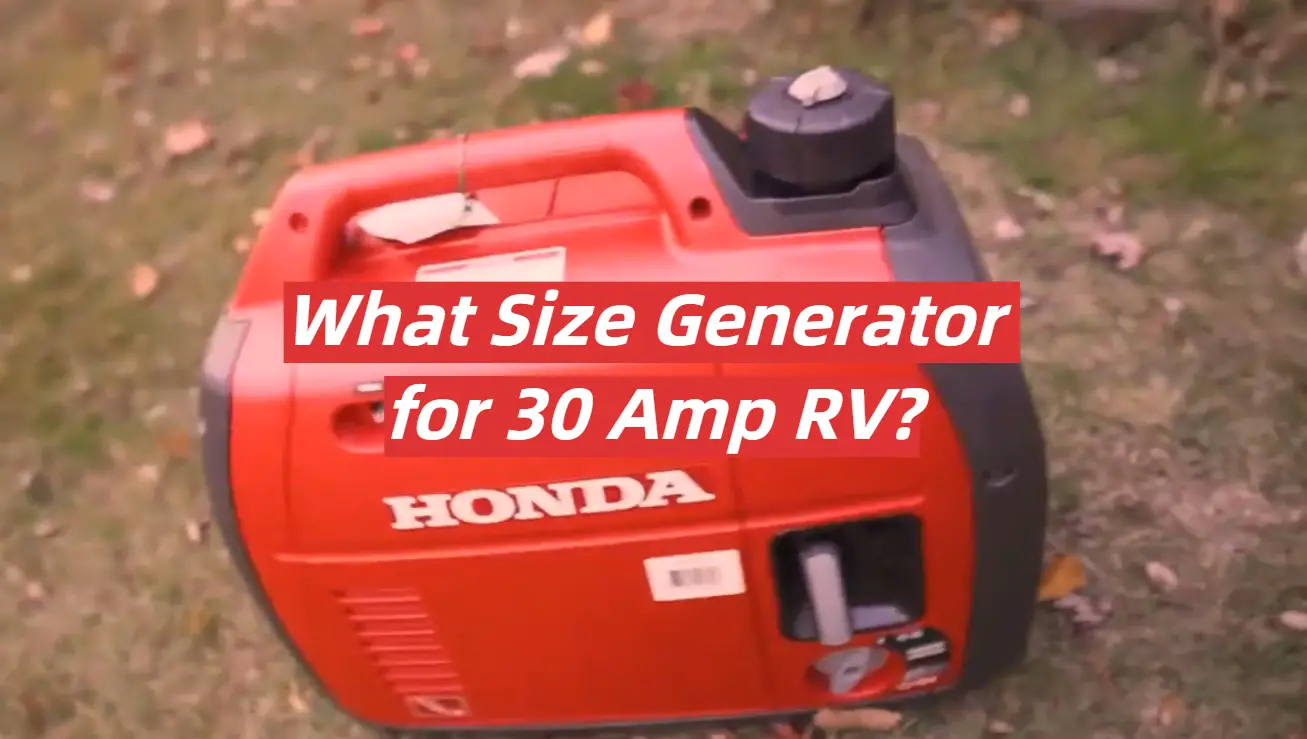
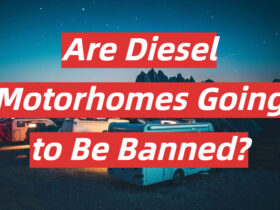
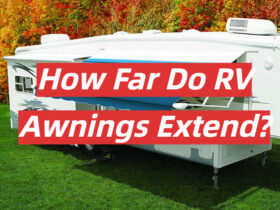
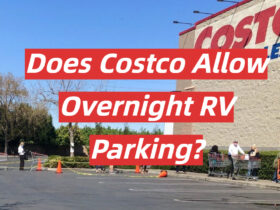
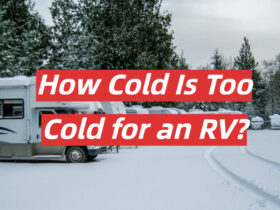
Leave a Reply